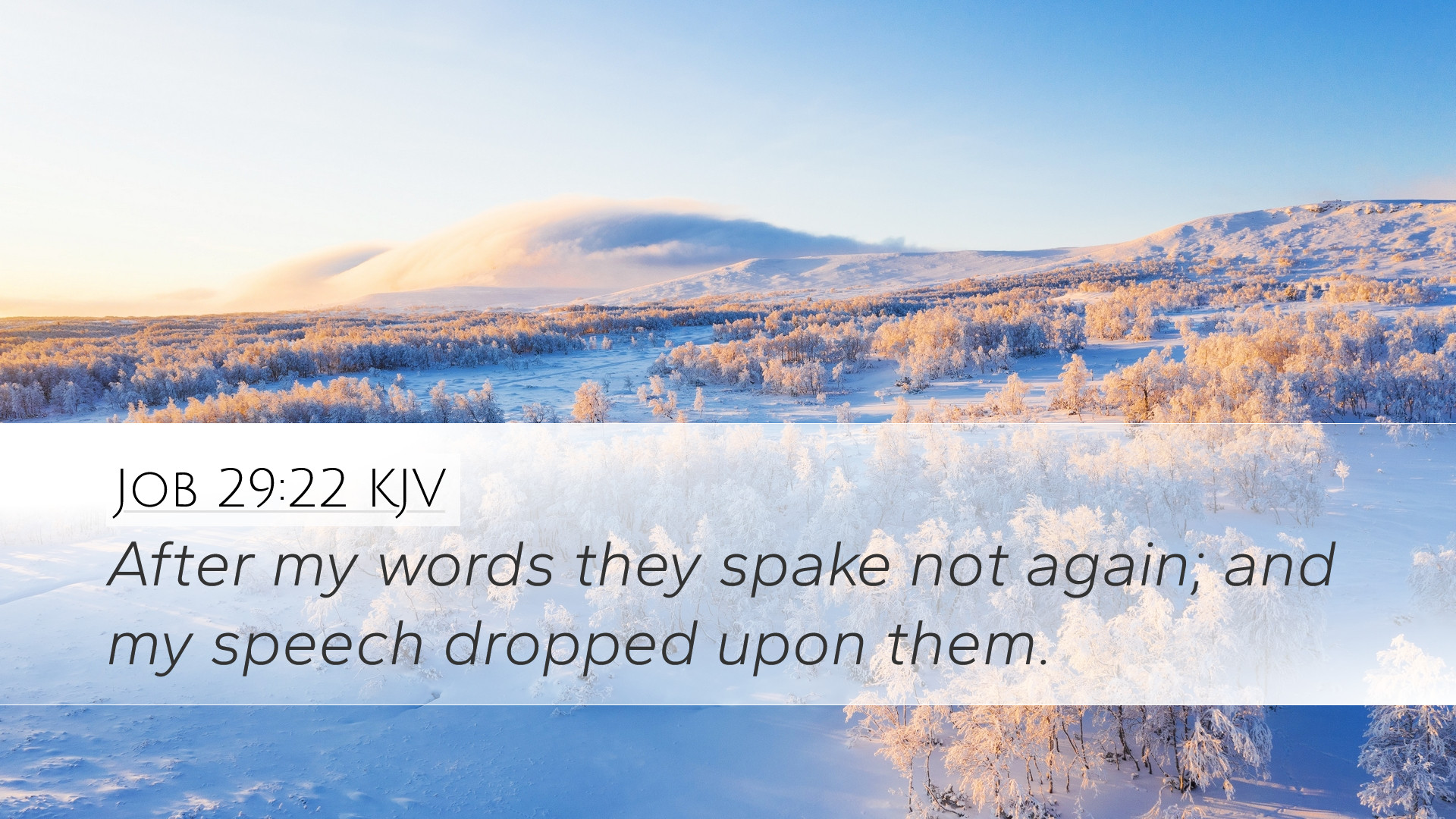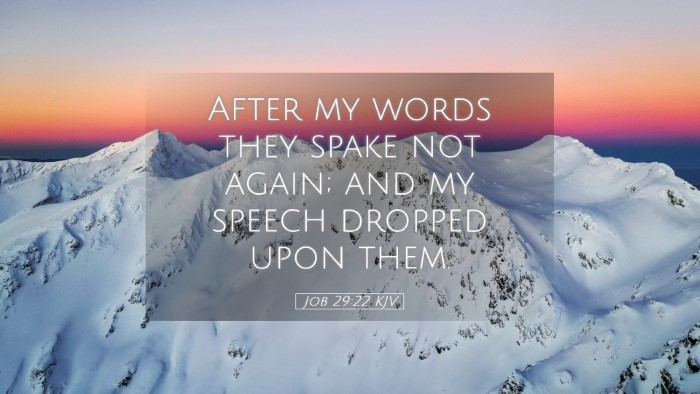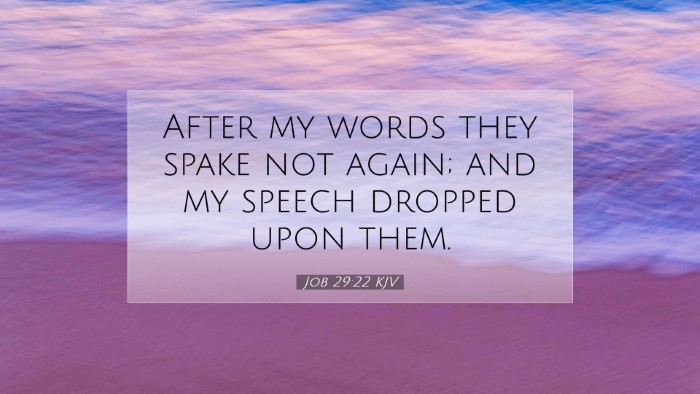Old Testament
Genesis Exodus Leviticus Numbers Deuteronomy Joshua Judges Ruth 1 Samuel 2 Samuel 1 Kings 2 Kings 1 Chronicles 2 Chronicles Ezra Nehemiah Esther Job Psalms Proverbs Ecclesiastes Song of Solomon Isaiah Jeremiah Lamentations Ezekiel Daniel Hosea Joel Amos Obadiah Jonah Micah Nahum Habakkuk Zephaniah Haggai Zechariah MalachiJob 29:22
Job 29:22 KJV
After my words they spake not again; and my speech dropped upon them.
Job 29:22 Bible Commentary
Commentary on Job 29:22
Verse Context: Job 29:22 records a poignant moment in Job’s discourse, where he nostalgically reflects upon his former days of prosperity and respect among his peers. This verse, in the broader context of Job's speeches, reveals the profound depth of his loss after great calamity.
Verse Text
“After my words, they spake not again; and my speech dropped upon them.” (Job 29:22, KJV)
Exegesis and Commentary
Job's Esteemed Reputation: Matthew Henry in his commentary observes that Job once held a position of honor and influence, where his words carried weight. This verse is a reflection of Job’s former authority, illustrating how his statements were not just heard but were impactful and revered.
Henry points out that the silence following Job's speeches indicates a profound respect. His words had the power to capture attention, marking him as a wise and thoughtful leader in his community.
Implications of the Verse
- Authority in Speech: The silence that followed Job’s pronouncement signifies a listener’s reverence. When Job spoke, it was perceived as wisdom; hence, the absence of rebuttal illustrates both the depth of his insight and his leadership role.
- Contrast with Current Situation: This verse starkly contrasts Job's current circumstances. As he laments his suffering, the recollection of how he was once esteemed serves to heighten the tragedy of his present plight, a theme expounded upon by Albert Barnes.
- The Weight of Suffering: Barnes emphasizes how Job's speech dropped like rain—a nourishing element—suggesting the life-giving quality of his words. His reflections demonstrate that Job understood the full implications of his influence.
Literary Devices
Metaphor of Rain: Adam Clarke comments on the metaphor of speech described as “dropping.” This imagery evokes the essential nature of water, which sustains life, paralleling how Job's wise words once fostered growth and wisdom among his community.
Clarke further notes that the depiction of his speech as rain indicates its abundance and refreshment, contrasting with the dryness of Job's current circumstances, underscoring the sense of desolation.
Theological Reflections
Lessons on Speech: This verse serves as an admonition on the responsibility inherent in speech. Those who speak must consider the weight of their words, as Job did when he wielded his influential voice for good. Leaders and teachers, particularly pastors and theologians, should reflect on this aspect when delivering counsel or preaching.
Human Experience of Suffering: Job’s experience encourages readers to navigate their suffering by recalling past times of clarity and purpose. The remembrance of fruitful labor and respect can provide deep solace amidst suffering, as Job’s recollections illustrate.
Conclusion
Integration of Insights: In contemplating Job 29:22, it is clear that this verse encapsulates more than a mere reflection of Job’s past; it serves as a powerful reminder of the influence of language and the weight of experience on human relationships. As we study this verse, may we learn to value our own words and the impact they have on others, just as Job once did.


